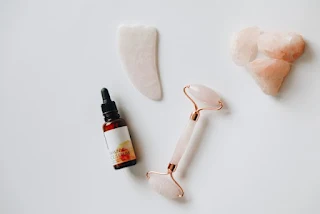The Ultimate Guide to Anti-Aging Skin Care Products: What Works and What Doesn't.
Unlock the Secrets to Ageless Beauty: Demystifying Anti-Aging Products
Aging is a natural part of life, but that doesn't mean we have to surrender to wrinkles and fine lines. The beauty industry is flooded with countless anti-aging products, each promising miraculous results. But with so much information (and misinformation) out there, it's hard to know which products actually work and which are just empty hype.
This comprehensive guide separates fact from fiction, empowering you to make informed choices for your skin. We'll delve into the science behind popular ingredients, expose common marketing tactics, and equip you with the knowledge to build an effective anti-aging skincare routine.
Ingredients in the Spotlight: Friends or Foes?
- Retinol: The undisputed champion of anti-aging, retinol (a form of vitamin A) is scientifically proven to reduce wrinkles, boost collagen production, and improve skin texture. However, it can be irritating, so start with a low concentration and gradually increase usage.
- Hyaluronic Acid: This natural humectant attracts and retains moisture, plumping up the skin and minimizing fine lines. It's gentle and suitable for all skin types.
- Vitamin C: A powerful antioxidant, vitamin C combats free radical damage, brightens skin tone, and fades hyperpigmentation. Look for stabilized forms like L-ascorbic acid for maximum effectiveness.
- Peptides: These short amino acid chains signal the skin to produce collagen and elastin, promoting firmness and elasticity. While promising, research on their long-term efficacy is ongoing.
- Niacinamide: This multi-tasking vitamin tackles a variety of concerns, including reducing inflammation, minimizing pores, and improving skin barrier function. It's well-tolerated and plays well with other ingredients.
Marketing Myths Debunked:
- "Miracle" ingredients: Unfortunately, no single ingredient can erase all signs of aging. Look for a balanced approach with a combination of effective ingredients targeting various concerns.
- Age-specific labels: While certain ingredients might benefit specific age groups, focusing on individual skin concerns is more crucial than chronological age.
- Expensive equals effective: Price doesn't always guarantee results. Do your research and prioritize product quality and ingredient concentration over brand name.
Building Your Anti-Aging Routine:
- Cleanse: Choose a gentle cleanser that removes impurities without stripping your skin's natural oils.
- Treat: Apply serums or targeted treatments containing your chosen actives (retinol, vitamin C, etc.)
- Moisturize: Lock in hydration with a moisturizer suitable for your skin type.
- Sunscreen: This is non-negotiable! Sun damage is the leading cause of premature aging. Use a broad-spectrum SPF 30 or higher daily, even on cloudy days.
Remember: Consistency is key! Anti-aging products take time to show results. Be patient, stick to your routine, and adjust as needed based on your skin's response.
Conclusion:
Achieving healthy, youthful-looking skin doesn't require magic; it requires knowledge and dedication. By understanding the science behind ingredients, avoiding marketing gimmicks, and building a personalized routine, you can empower your skin to naturally defy the aging process. Embrace your ageless beauty, and let your radiant skin be the best advertisement for your commitment to self-care!
I hope this comprehensive guide empowers you on your journey to achieving ageless beauty!


